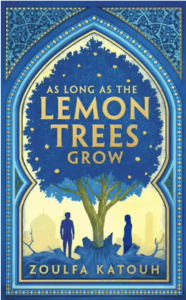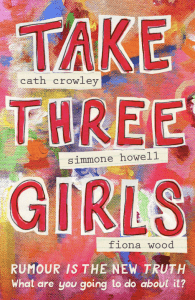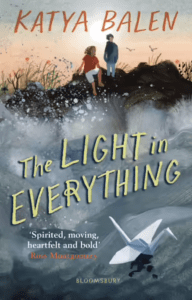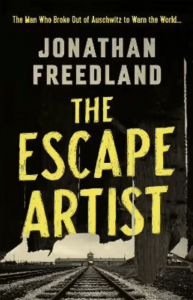As Long As The Lemon Trees Grow
by Zoulfa Katouh
Reviewed by Mr Llewellyn-Evans

“As long as the lemon trees grow, hope will never die.”
This is a novel about hope, but it is also a novel about desperation. The desperation that forces people to flee from their homes, from their family and from their country which they love so dearly.
Set in Homs in Syria during the civil war, the novel begins as one of existence in times of terror, despair, and loss. The story is about Salama a first-year pharmacy student who finds herself in a hospital performing duties she would never dream of as she tries to come to grips with loss. Her parents and her brother have disappeared/died, and she finds herself living with her sister-in-law who is pregnant.
How do you cope in such circumstances, what gives you strength to keep going? Certainly, love for those close to you but also for your country and what it stands for. But Salama slowly realises that there is no hope of survival, the Assad regime is winning and if she is going to protect her pregnant sister-in-law then she needs to leave. The novel clearly shows that many refugees are reluctant to leave their homelands and gives insight into the difficult decisions which must be made to cast oneself adrift from all you know to undertake perilous journeys to just survive. The novel is also about love, reluctant at first, because how can you commit to a relationship in such times when your future is so uncertain, but it grows and develops like the lemon tree, till it becomes the strength which allows Salama to leave and perhaps hope for a better future.
This is a beautiful written novel which gives insight into the trauma of war, the difficulty of leaving your homeland and the power of love. It contains some interesting twists which can catch you as quite unexpected.
It is a novel well worth reading!
4.5 out of 5 stars



